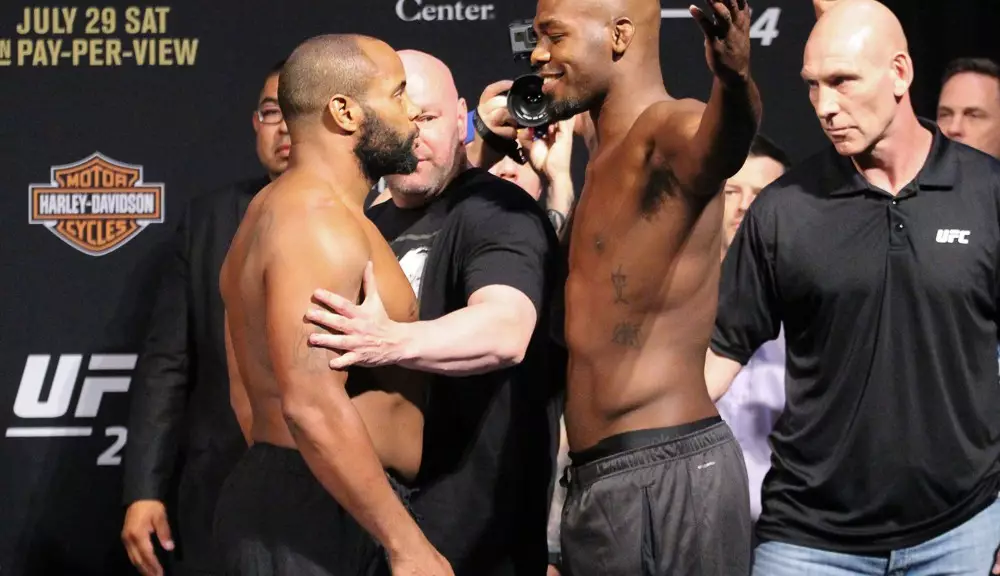Jon Jones is a name that resonates powerfully in the world of mixed martial arts (MMA), revered by many for his skills yet scrutinized for his controversial past. The debate over his place in the pantheon of MMA greatness has been reignited, especially after his recent victory at UFC 285, where he secured the heavyweight championship with a swift submission against Ciryl Gane. Despite this remarkable achievement, former champion Daniel Cormier, who has a complicated history with Jones, remains steadfast in his critique, challenging the narrative that Jones deserves to be labeled the greatest of all time (GOAT).
The Legacy and the Controversy
Jones’ career record stands as a testament to his fighting prowess: 27 wins and just one loss, a defeat that came from a disqualification rather than a physical defeat. Throughout his career, he has faced many of the best fighters, transcending generations in the sport. Cormier acknowledges that Jones’ skill set is unparalleled, praising his ability to integrate techniques and adapt to different fighting styles. This adaptability has allowed Jones to remain relevant and dominant as the sport evolved, defeating former champions from various eras.
However, Cormier’s assertion that Jones’ legacy is tainted arises from a pattern of performance-enhancing drug (PED) allegations that have dogged Jones’ career. The pivotal moment for Cormier occurred in their rematch when Jones tested positive for a banned substance that turned the victory into a no contest. This pivotal incident illustrates a broader issue within the sport, where athletes face a serious dilemma between achieving greatness and maintaining integrity. For Cormier, achieving greatness while “doing dirty work” compromises the purity of the title.
Understanding the Complications
What adds layers to this debate is the fact that Jones has been cleared of knowingly using performance enhancers in some instances. An independent arbitrator concluded that his positive tests did not indicate intentional cheating. This aspect complicates Cormier’s assertions, as it opens the conversation about the nuances of intention versus action within sports. Can an athlete be considered great if their achievements are marred by questions of integrity? Many argue that while the quantified achievements stand tall, the ethical implications can overshadow them.
Cormier’s perspective is critical in sparking a vital conversation within the MMA community. The question remains: how do we gauge greatness in a sport where the line between talent and ethical conduct can blur? Cormier admits that Jones’ knockout—described as the hardest strike he’s ever faced—was a significant moment in their contentious rivalry. However, this acknowledgment coexists with the grim reality of what underpinned that rivalry.
In light of Cormier’s comments, it becomes clear that while Jon Jones’ technical skills and achievements are undeniably exceptional, they are intricately tied to the controversy that has shadowed his career. The ongoing dialogue about greatness in sports, particularly in MMA, will likely persist as long as athletes continue to grapple with the consequences of their choices. Cormier’s stance reinforces a crucial point: integrity matters, and it shapes the way athletes are remembered beyond their victories in the octagon. As the debate rages on, it raises the question of whether anyone, including Jones, can truly be regarded as the greatest if their legacy includes a history of questionable actions.

